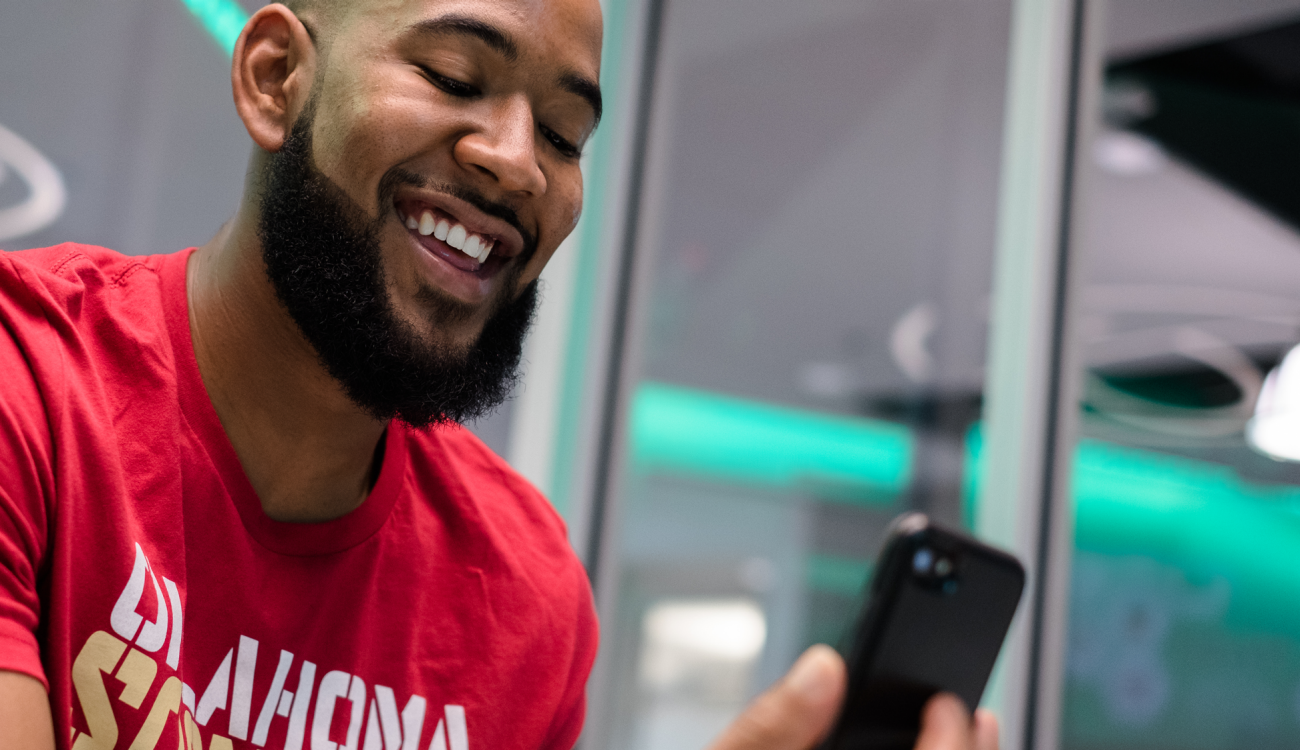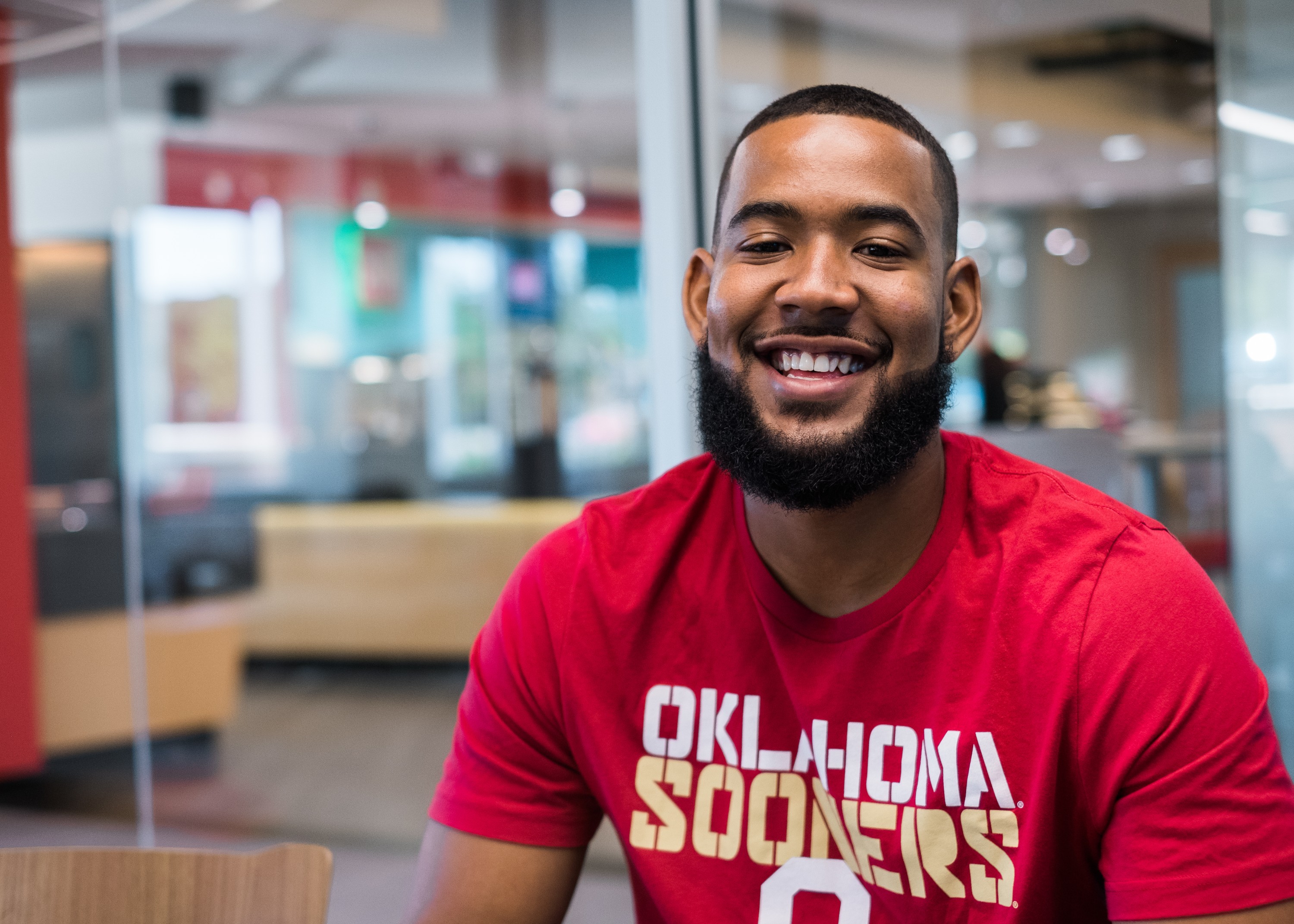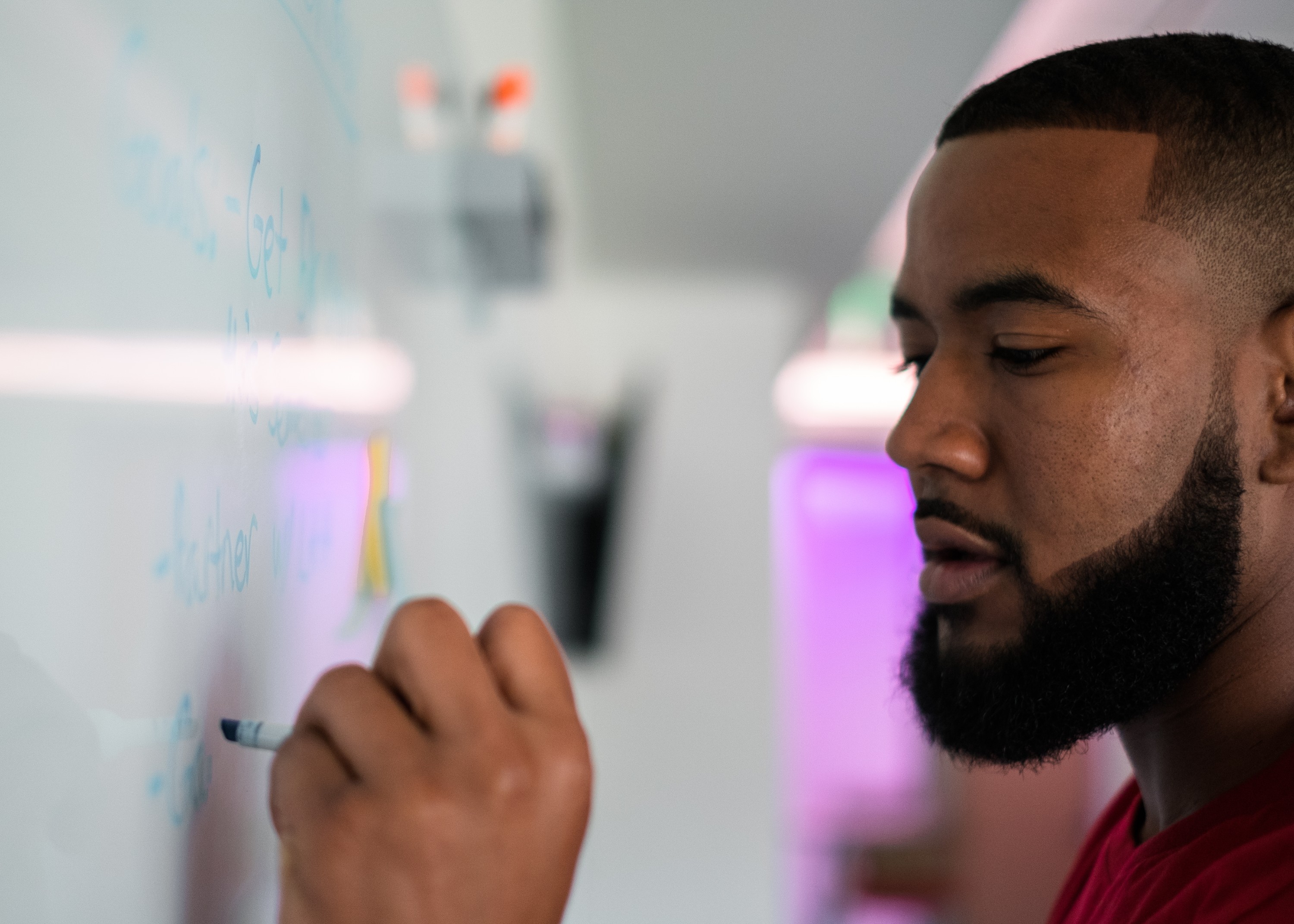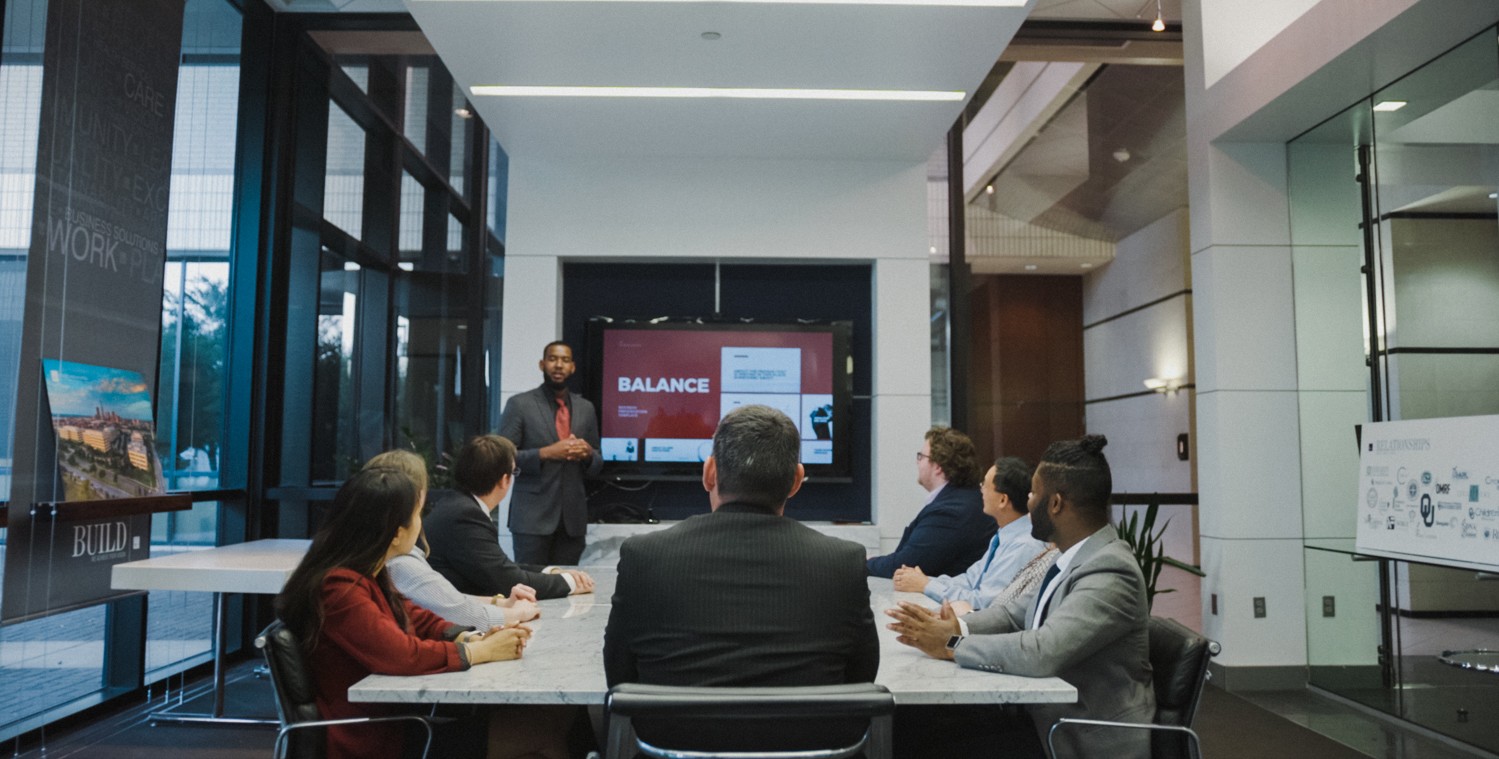Forge the Future Feature Story
Becoming a Disruptor
See how an aspiring entrepreneur luanched a company that brings the power of artificial intelligence to college enrollment.

See how an aspiring entrepreneur luanched a company that brings the power of artificial intelligence to college enrollment.
“Ever since I was a kid, I wanted to create something that people would use everyday,” OU Senior, Chris Beasley, said in earnest.
While most kids dreamed of being veterinarians to spend the day with animals or fire fighters to speed around in flashy trucks, the young entrepreneur inside Chris drew career inspiration from less glamorous scenarios. He saw the value in utilitarian products that solve everyday problems.
“I looked at something like a toilet and thought, whoever invented the toilet has to be killing it.” Drawing entrepreneurial inspiration from a bathroom is at the very least unconventional, but this unlikely inspiration was really an important business principle in disguise. One that would lead him to an unexpected solution with the potential to revolutionize the way people plan for the future.

Today, Chris is double majoring in economics and entrepreneurship at OU, where he explores potential business ventures through experiential learning opportunities. “Price college is different,” he said. “They don’t just lecture on how to start a business. They make you to get out and vet your ideas, see how feasible it is, and talk to real customers. They prepare you to launch something.”
And launch something, he would.
When Chris met Troy Smith, a computer science major at OU, a common bond over fashion and entrepreneurial dreams galvanized their friendship. They exchanged business ideas for fun, but nothing stuck. That was until one night.
Troy came home late and realized he needed to make his schedule for the next semester. He pulled out his advising sheet, a clutter of course numbers. He was too tired to look up each course and search for the ideal times, so he created a program to do it for him. When Chris saw the program Troy created, he instantly recognized the value it could have to all college students.

“This is something I would want to use,” Chris said. He had difficulties with enrollment in the past and suspected other students experienced similar struggles. Their market research confirmed this was a pain point for not just students, but advisors and administrators as well.
They found that students wanted advising appointments to include more career counseling and less schedule making. “When you’re a freshman, there are so many important questions you may not even know you need to ask. First generation students are especially at risk,” said Chris.

Similarly, advisors wanted to spend less time on day-to-day admin responsibilities in order to offer more valuable sessions to students. “There has been a huge shift in recognizing the value of relational-based advising, to where students actually have a conversation about their career path with their advisor,” Chris explains.
Chris believes that Troy’s program could disrupt the way colleges and even large high schools do academic advising. Using artificial intelligence to generate course schedules and automate admin duties could be the solution to giving counselors more time to build relationships with students that could positively impact their career path for life.
After several iterations, updates, and research, that provisional program that Troy created in the middle of the night became ScheduleNav, an artificial intelligence-based data and analytics company. “From our initial product a year ago, it’s a night and day difference,” said Troy.
Troy and Chris applied to take ScheduleNav through the Sooner Launch Pad, a competitive business accelerator that provides mentorship, training, and $10,000 in seed funding. “Our goal is to raise $100,000 by the end of the two days we pitch and then be at $500,000 by the end of the year.” A year from now, ScheduleNav hopes to be piloting at a few universities and ramping up their purchase cycle.



The methodology behind Sooner Launch Pad is reminiscent of a young Chris — the little kid who drew inspiration from the invention of the toilet — looking to create something people wanted and needed.
“Throughout history, most people have gone with the “if you build it, they will come” method when it comes to business ventures. The lean launch pad tells you to pump the breaks. Before you start building things, go talk to people about whether or not this is something that they would want to come to. From there, you learn how to adjust your product to what your customer or audience base is wanting,” Chris explains.
Chris believes that programs at Price College of Business and the Innovation Hub are driving the growth of an entrepreneurial culture in Oklahoma.

ScheduleNav is an open website now. OU students can create a profile and ScheduleNav will produce three different class schedules based on your preferences. Chris and Troy have been busy hiring as they expand. Their goal is to get 5,000 students to use their application by the end of the year.
When Chris reflects about what it would take for ScheduleNav to be successful in the end, it’s far more than creating a profitable business. It’s a long game. He believes that advising could be a critical turning point in a college student’s journey. Advising appointments have the potential to equip students not only with the knowledge and tools they need to be successful in their classes, but also create space to think critically about their future careers. Chris hopes ScheduleNav can unlock that potential and help revolutionize the industry, because everyone's future is worth talking about.